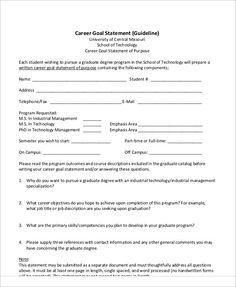Adam Markus: Graduate Admissions Guru: 5/1/13 - 6/1/13
This is the first of five posts analyzing the Stanford GSB MBA Essay Questions for Class of 2016 Admission. The five posts are overall comments, Essay 1, Essay 2, Essay 3, and additional information/resume/employment history/activities. My analysis of Stanford GSB interviews can be found here. In addition to the Class of 2016 posts, I also recommend reading and/or listening to my presentation, “So you want to get into Stanford GSB? ” which was made to a Japanese audience in March 2011. That presentation focuses on issues that are applicable to all applicants as well as some issues specific to Japanese applicants. You can find results and/or testimonials from my clients admitted to to the Stanford Classes of 2015, 2014, 2013, 2012, 2011, and 2010 here. My full Stanford results prior to the Class of 2014 can be found here. My clients admitted to Stanford GSB have come from China, India, Japan,South Korea, and the United States and have had extremely diverse professional and educational backgrounds.
The advice I provide below is based on that experience. In this post I provide some overall comments about the Stanford GSB MBA essay set for admission to the Class of 2016, an analysis of the centrality of demonstrating Stanford GSB’s three central admissions criteria- Intellectual Vitality, Demonstrated Leadership Potential, and Personal Qualities and Qualifications-, and some suggestions for how to proceed in order to put together a great application for Stanford GSB. Tell us in your own words who you are. more info here.. : What matters most to you, and why? The best examples of Essay 1 reflect the process of self-examination that you have undertaken to write them. They give us a vivid and genuine image of who you are—and they also convey how you became the person you are. They do not focus merely on what you’ve done or accomplished. Instead, they share with us the values, experiences, and lessons that have shaped your perspectives. This article has been done with Essay Freelance Writers!
They are written from the heart and address not only a person, situation, or event, but also how that person, situation, or event has influenced your life. Essay 2: What do you want to do—REALLY—and why Stanford? Use this essay to explain your view of your future, not to repeat accomplishments from your past. MBA at Stanford, in particular. The best examples of Essay 2 express your passions or focused interests, explain why you have decided to pursue graduate education in management, and demonstrate your desire to take advantage of the opportunities that are distinctive to the Stanford MBA Program. Essay 3: Answer one of the three questions below. Tell us not only what you did but also how you did it. What was the outcome? How did people respond? Only describe experiences that have occurred during the last three years. Option A: Tell us about a time in the last three years when you built or developed a team whose performance exceeded expectations.

Option B: Tell us about a time in the last three years when you identified and pursued an opportunity to improve an organization. Option C: Tell us about a time in the last three years when you went beyond what was defined or established. Your answers for all of the essay questions cannot exceed 1,600 words. You have your own story to tell, so please allocate the 1,600 words among all of the essays in the way that is most effective for you. We provide some guidelines below as a starting point, but you should feel comfortable to write as much or as little as you like on any essay question, as long as you do not exceed 1,600 words total. Indicate which essay question you are answering at the beginning of each essay (this does not count towards the 1,600 word limit). Begin work on these essays early, to give yourself time to reflect, write, and edit. Feel free to ask your friends or family members to provide constructive feedback.
When you ask for feedback, ask if the essays’ tone sounds like your voice. It should. Your family and friends know you better than anyone else. If they do not believe that the essays capture who you are, how you live, what you believe, and what you aspire to do, then surely the Committee on Admissions will be unable to recognize what is most distinctive about you. There is a big difference, however, between ‘feedback’ and ‘coaching.’ There are few hard and fast rules, but you cross a line when any part of the application (excluding the Letters of Reference) ceases to be exclusively yours in either thought or word. Appropriate feedback occurs when you show someone your completed application, perhaps one or two times, and are apprised of errors or omissions. In contrast, inappropriate coaching occurs when your application or your self-presentation is colored by someone else. You best serve your own interests when your personal thoughts, individual voice, and unique style remain intact at the end of your editing process.